Olympic Drug Testing is Unfair
What is anti-doping?
Anti-doping constitutes a large range of activities with the specific motive of eradicating doping (the use of PEDs) in sports. PEDs, or performance-enhancing drugs, are considered to be an unfair aid when rising to the top of almost any sport. Some processes or PEDs banned in the Olympics include: blood doping (the process of extracting and storing one’s own blood and then injecting the stored blood immediately before competition), androgenic agents like anabolic steroids (which often increase testosterone), and some stimulants, hormones, narcotics, etc. The point of anti-doping is allegedly the conservation of integrity in sports in terms of respect for rules, other competitors, and a level playing field.
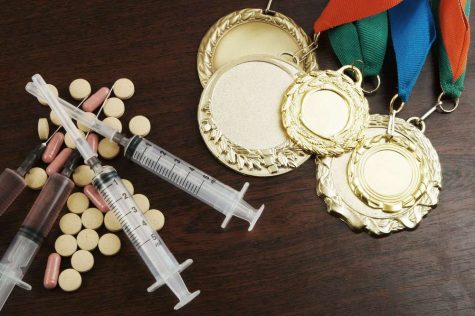
What is my position?
It seems to me that since drastic amounts of top-level professional athletes already use many of these drugs, and have been for decades, anti-doping does more harm than good. There are many problems with anti-doping, including the fact that it creates an unlevel playing field, it facilitates corruption, it forces athletes to use more dangerous drugs, and it makes the impressionable public, especially children, think that sports are drug-free. Despite these problems, I would like to say that if anti-doping worked 100% of the time, I would not be opposed to it at all, but because of the problems it creates, it seems to be working against most people.
Are top level athletes really using PEDs?

To think about this question in an Olympic context, we have to look at a few examples. First of all is the case of East Germany. From 1976 to 1988, East Germany came second in medal count in all three of their Summer Olympics. The government of the GDR oversaw a decades-long initiative of managing and distributing PEDs, like testosterone and other anabolic drugs, to its top-level athletes. Drug use in East Germany had many components to it. 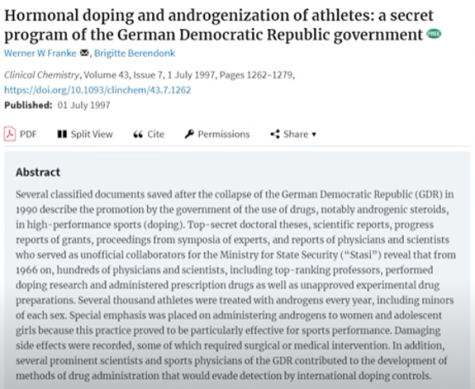 First, we see the beginning of using sports as a tool to gain legitimacy. The aim of the doping program in East Germany was to strengthen the country’s image and status by dominating international sports events like the Olympics. Eventually, the program was exposed. After the fall of the Berlin Wall, many athletes and other members involved came forward and a series of investigations and trials were organized against the organizers of the East German doping system. It became distinctly clear that sports are not simply about a fair competition or a fun time. This scandal not only laid the groundwork for sports to become a political tool, but also for an immense amount of corruption to seep into international sports competitions. To be clear, drug testing occurred even in those days, but the main problem we find is that drug tests are never up to par with the drugs people are using, or how they are using them to avoid testing positive. We can see government documents that have been leaked or released since the times of the doping-scandal. Graphs of just how much performance improved when athletes took things like testosterone are widely available. There are even examples of doping protocols that athletes followed pre-competition to pass drug tests. These athletes all had to pass doping tests to compete, but even back during the East German days, it didn’t stop them.
First, we see the beginning of using sports as a tool to gain legitimacy. The aim of the doping program in East Germany was to strengthen the country’s image and status by dominating international sports events like the Olympics. Eventually, the program was exposed. After the fall of the Berlin Wall, many athletes and other members involved came forward and a series of investigations and trials were organized against the organizers of the East German doping system. It became distinctly clear that sports are not simply about a fair competition or a fun time. This scandal not only laid the groundwork for sports to become a political tool, but also for an immense amount of corruption to seep into international sports competitions. To be clear, drug testing occurred even in those days, but the main problem we find is that drug tests are never up to par with the drugs people are using, or how they are using them to avoid testing positive. We can see government documents that have been leaked or released since the times of the doping-scandal. Graphs of just how much performance improved when athletes took things like testosterone are widely available. There are even examples of doping protocols that athletes followed pre-competition to pass drug tests. These athletes all had to pass doping tests to compete, but even back during the East German days, it didn’t stop them.
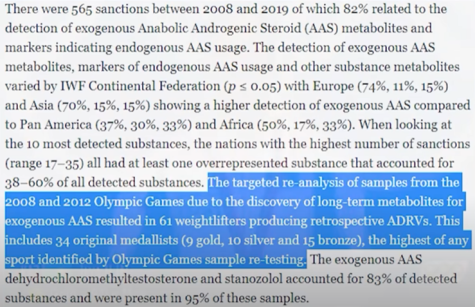
Next, it is important to analyze the data from retrospective drug testing. Retrospective drug testing is a huge example of the fact that doping is a massive issue in Olympic sports. These tests usually analyze urine samples years after they were taken, and it generally becomes obvious that more athletes than we think use drugs. While these examples vary based on sport, weightlifting is the easiest example, due to the fact that PEDs help more than in almost any other sport. The targeted re-analysis of samples from the 2008 and 2012 Olympic Games resulted in 61 weightlifters producing retrospective ADRVs (anti-doping rule violations). This included 34 original medalists, the highest of any sport identified by Olympic Games re-testing. Another example is Thomas Zielinski, who originally came in 9th place in the 2012 Olympics. After the re-tests he got bumped up to third place, getting a bronze medal. This occurred because so many athletes got caught with drugs, but he did not. Later, he tried competing in the 2016 Olympics . . . but he and his brother got caught using drugs.

It is obvious just how absurd these competitions really are. Doping protocols to pass tests don’t always work perfectly, so it seems as if these sports have become more of a guessing game and a science experiment than a display of hard work, talent, and skill. Doping and PED usage is almost as common in other sports as it is in weightlifting. If we look at the all-time men’s 100m list with names associated with doping crossed off, we can see that out of the 29 best runs, 20 of them have been crossed off. Even more surprisingly, the best nine runs are all accredited to one athlete who has not been caught doping: Usain Bolt. And even in Bolt’s case, there was a ruling in the Olympic Doping Case which took his ninth medal. Even if you look at the ten best overall 100m sprinters in history, only three have never had a doping charge. How long will it be until the next best athlete is caught with drugs? Is it less impressive when they are? And what about those who are never caught? It seems as if all of this seems to be creating an incredibly unfair environment. For a final example of weightlifting, we have Lasha, who was banned in 2013, when he tested positive for winstrol. A couple years after his suspension ended, he added 80 kilos to his total, becoming the greatest super heavyweight of all time, all while passing every drug test for the past couple years. For those who do not follow Olympic weightlifting, 80kg is an incomprehensible, and seemingly impossible, amount for someone to add to their total in just a few years. Even this year, at the 2020/2021 Olympics, Lasha Talakhadze beat the world record clean & jerk and the world record snatch, setting a new world record total of 488kg. There seems to be too much evidence pointing to the fact that exceedingly many top athletes use drugs.
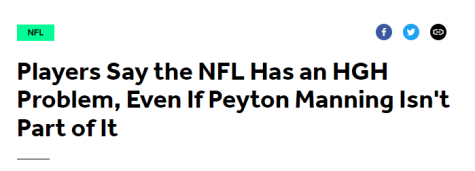
Even in the NFL, according to a report published on the Bleacher Report, current NFL players project that between 10 and 40 percent of the league is using human growth hormone. Is it really surprising that top NFL players use substances that increase strength, decrease body fat and facilitate quicker healing from injury? The testing procedures aren’t catching almost anyone, and if they did, then players would quickly find an alternative. At the highest level of sports, the amount of influence that money and fame has to offer trumps any view of fairness or safety, so wouldn’t the most fair, and most safe option be to let these athletes go without testing? It is no surprise that new compounds are constantly being experimented on, and used by athletes all across the world. It would be much safer for athletes to take testosterone, let’s say, than an experimental drug created and facilitated by the government of Egypt.
Isn’t drug testing supposed to protect people and create a fair environment?
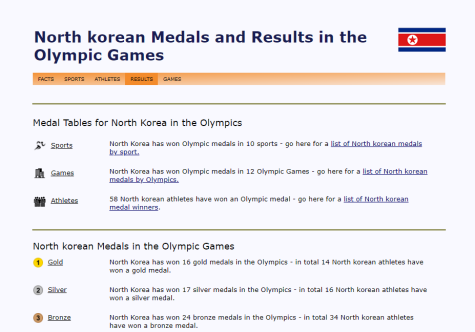
Sure, the point of drug testing and anti-doping protocols is to protect all the athletes, while creating a fair environment. But it doesn’t work. I mean, do you still think it creates a level playing field, and prevents people from having an unfair advantage? Realistically, it does the complete opposite. First of all, drug testing in every country in the world is different. If you are born in a western country where drug testing is generally stricter, you will be at a severe disadvantage compared to somewhere far less strict. For example, if you are a weightlifter from the USA where you get tested multiple times per year outside of competitions, how can you compete with someone from North Korea where out of competition drug testing is non-existent. Sports are extremely corrupt and, as has been proven by history, governments will help their athletes dominate on a global stage by any means necessary.
Are drug rules the same everywhere?
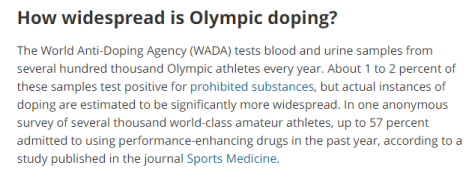
There is no stable agreement on a global level about PED use, or even recreational drug use. Someone in Egypt can simply walk into a pharmacy and buy whatever steroids they want. How is that fair when in Denmark and Belgium, anabolics are so demonized that they drug test random people in commercial gyms? It isn’t.
So what is the conclusion?
Realistically, if anti-doping didn’t exist, sports would be more fair. All that WADA (the World Anti-Doping Agency) does is make it so that the athletes with the most money, the most access to drugs, and with the most corrupt people behind them will win. I would say that anti-doping has been proven wrong because of how bad the tests are, the fact that athletes will never stop using drugs due to the political importance for some countries to do well, the individualistic, competitive aspect of every athlete, and the fact that it causes more unfairness, which is the opposite of its stated goal.